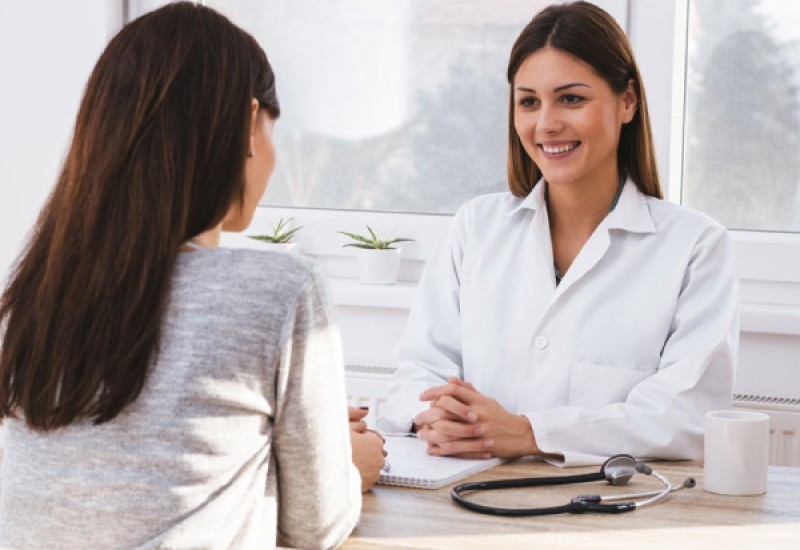
Specializations
Adolescent Care

Adolescence is an exciting period of incredible physical, emotional and cognitive growth - but can often be unpredictable and sometimes dangerous.
Adolescents require a solid base in which to navigate this transitional period, including access to high-quality health care that is age appropriate, comprehensive, and confidential.
For adolescent care in Noida, consult Dr. Bhumika Shukla at Niraamaya Clinic
Premenstrual Syndrome
Adolescence is an exciting period of rapid physical, emotional and cognitive growth. These changes may also create health concerns that require care and attention; adolescents require information, comprehensive sexuality education tailored specifically for them at an age-appropriate level, opportunities to develop life skills as well as safe environments where these services can be provided effectively and ethically.
Teenagers typically postpone seeking medical help due to either lacking the ability to recognize symptoms or believing their issues don't warrant treatment.
Adolescent care can be accessed healthcare through school-based clinics, but services may not always reach those most in need. To improve health outcomes for these teens, providers must educate themselves about their specific needs while also working closely with community partners and local programs to create innovative solutions.
Menstrual Cramps
Menstrual cramps are a painful throbbing sensation in the lower abdomen that occurs every month when the uterus sheds its lining to begin menstruation. They typically begin one to three days before and two or three days into menstruation and last two to three days postmenstruation. Cramps can worsen if overweight or following an unhealthy diet and may need medical intervention for severe cases.
If cramps become severe, teens can use a heating pad or warm washcloth on her lower belly for instantaneous relief. Also consider trying warm baths or acupressure.
Communication about sexuality can be difficult for young girls, especially if their periods are painful. Therefore, it's essential that they discuss their sex life with their doctor or gynecologist in order to find ways to manage her period and decrease pain associated with menstruation.
Abnormal Period
Teen years are often thought of as being healthy years for adolescents; however, many adolescents engage in behaviors which put their health at risk now and in the future. This may include nutrition, physical activity, sexual behavior and substance use among others.
Adolescents face many emotional and social challenges that can have an adverse effect on their well-being, so primary care physicians must make their practice conducive to adolescents by making it comfortable for teens to visit the waiting room and exam rooms.
Adolescent healthcare is complex due to rapid physical, cognitive and psychosocial development during this stage of life. Therefore, it's essential that adolescents receive appropriate treatment at every point during this transition period in order to develop healthy habits that will support them as they enter adulthood.
Bleeding Problems
Heavy menstrual bleeding among adolescents is often a significant source of distress and decreased quality of life, often serving as a telltale sign for an underlying bleeding disorder such as von Willebrand disease, platelet function defects or deficiencies, such as thrombocytopenia or immune thrombocytopenic purpura.
An adolescent with unexplained menstrual bleeding must be seen by an obstetrician-gynecologist and hematologist, working together to assess and manage her condition. Iron supplements should usually suffice; otherwise, other treatment options such as blood transfusions or hemoglobin concentrate therapy might need to be explored by working together between both providers.
Adolescent care goes beyond physical health concerns to provide long-term benefits to its young patients. Adolescents often establish patterns of behavior relating to diet, exercise, alcohol consumption and sexual activity which could either safeguard or compromise their future wellbeing.
Forming an effective partnership with gynaecologist is key for helping adolescent patients manage their own health issues, including those pertaining to sexuality, mental and emotional well-being and how their actions impact others. A relationship can foster personal accountability for health-related behaviors as well as promote positive self-esteem and encourage young people to seek information and assistance from reliable sources - which may reduce mistreatment or exploitation related to sexual activities by third parties.
